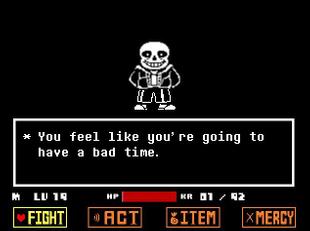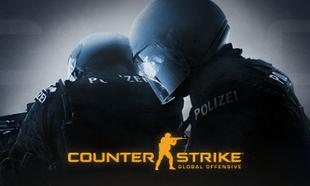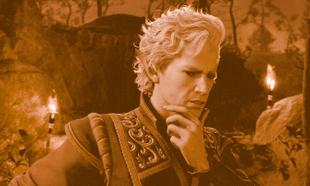In all forms of media, the most influential titles are often those made on the cheapest budgets - and 'Undertale' is proof of that in the video gaming sphere.
'The Blair Witch Project' and 'Paranormal Activity were made for dirt cheap and made a packet, debut albums by Nirvana and Black Sabbath changed the face of rock music, and 'Undertale' proved you don't need a sky-high budget to provide an unforgettable experience.
The success of 'Undertale' is the success story that has become so synonymous with gaming and ties it to punk rock - just about anyone with a little bit of money and a dream can hit it big, and what is so remarkable about 'Undertale' is how good it is.
7 years on from release, 'Undertale' has lost none of the ability to shock, and is still as novel and fresh to play now as it was in the summer of 2015.
In the same year as 'Undertale', games like 'The Witcher 3' and 'Metal Gear Solid 5' were multi-million Euro epics that offered vast game worlds, but 'Undertale' managed to trump them with sheer ingenuity and wit.
Cute As A Fox
The success of 'Undertale' is remarkable because it was largely made by one man - Toby Fox.
The 2010s were defined by game development teams ballooning to over 500 plus people in the case of blockbuster titles like 'Resident Evil 6', but the 2010s also saw the rise of tiny development teams taking on the best that the gaming industry had to offer.
Other minimalist successes like 'Minecraft' and 'The Binding Of Isaac' were considered for this series, but it's the artistic merit and ambition of 'Undertale' that earns it a spot on our list.
A supremely talented developer creating a worldwide hit with little money is something that appeals to the same part of the brain that enjoys watching 'Rocky' movies.
Seeing the little guy triumph over more established or famous competitors was one of the defining moments of video game development in the 2010s, and in the spirit of these articles marking the 25 biggest games of our lifetime, we felt 'Undertale' best represents this specific trend within gaming culture.
By the time 'Undertale' was released in 2015, the live service and day one patch culture was slowly starting to rot away at the roots of gaming, and was turning gaming into more of a business than an art form.
It took 'Undertale' with its limited budget but unlimited ingenuity to make players sit up and take notice of what gaming could and should be.
Made for roughly €50,000, 'Undertale' is a masterclass in the philosophy of "less is more", and sometimes being restricted by resources isn't a bad thing.
The innovative combat system didn't have flashy 'Final Fantasy' style graphics, but the graphical style
In this case, it brought out the best in Toby Fox.
Sans became an iconic figure in gaming almost overnight, even appearing in 'Smash Brothers', but it wasn't the iconic character that made 'Undertale' such a smash hit.
It did something genuinely different and novel than every other game out there.
The choices actually meant something.
Decisions Decisions
Another trend in gaming in 2010s was the advent of the "choose your own path" style of narrative.
'Heavy Rain' was first out the gates in 2010, and 'The Walking Dead' launched the gameplay mechanic into the mainstream in 2012, but 'Undertale' deconstructed it.
Choice-driven games like 'Heavy Rain' and 'The Walking Dead' paid lip service to crafting a story that catered to the whims of the players, but 'Undertale' actually made your choices matter.
Going down the genocide route in 'Undertale' is perhaps the biggest moral grey area in gaming, and it doesn't need hyper-realistic graphics to make the player feel uncomfortable.
'Undertale' pulls a very specific trick; it makes you the hero of your own story and the potential villain in another.
'Spec Ops: The Line' pulled the same trick in 2012, with the Hollywood-style macho man blockbuster deconstructed into a nightmarish vision of war, and 'Undertale' does the same here, making the players think they're the hero of their own epic adventure and pulling the rug from under them.
Should players choose to dispose of Sans, you genuinely feel like an awful person.
In a triple-AAA game, a motion-captured actor would have done their best Meryl Streep in 'Sophie's Choice' impression to help drive home the drama, and yet, the graphical style of 'Undertale' strangely makes it more emotive.
The world and characters of 'Undertale' are so well-written that the choices the player makes actually has consequences and weight.

In your first run-through of 'Undertale', it is possible to spend the entire playthrough sparing every enemy, but you must face the final boss, with no option to spare them.
To bring it back to the example of 'The Walking Dead', the story would have ended up in roughly the same places regardless of the choices you made, but in 'Undertale', this sudden shift is earned.
You become so invested in the world and lore of the game, that forgoing your principles at the final hurdle feels like a masterstroke.
'Undertale' earns these big moments.
Of course, on the other end of the coin, you can go through the game rampaging and killing every enemy you meet, and this again shows the game at its sparkling best.
There isn't a karma meter or an on-screen indicator telling you that X character disapproves of your action, but instead keeps track of your misdeeds, and throws it back in your face in the most spectacular fashion.
Post Script
The success of 'Undertale' was the kick up the arse the gaming industry needed in 2015.
Somewhere along the way, graphics became the holy grail and end game for developers, and it stood in the way of genuine gameplay innovation and story.
Earlier in 2015, 'The Order: 1886' displayed incredible graphics for the PlayStation 4 but forgot to tell a good story.
One of 2015's biggest duds was 'Halo 5: Guardians' which failed at both gameplay and story.
2015 was the year the triple-AAA became complacent, and it took 'Undertale' to wake the gaming industry out of its stupor.
The success of 'Undertale' is surprising in many ways - the consoles of the era were priding themselves on how many pixels they can fit on their screen or how much money you could spend on in-game purchases, and the success of 'Undertale' served as a de-facto referendum.
The maxim "if you build it, they will come" is in full effect here, and a captive audience was right there waiting for something wholly unique and fresh to sweep them off their feet.
The single-player genre has seen a revival in recent years, and 'Undertale' was among the games that lead the charge.











































































